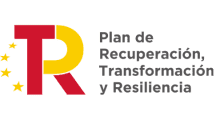the oil mill
Alperujo compost
Alperujo, one of the most abundant by-products generated in oil production, requires the development of new sustainable management alternatives. The ‘Cortijo el Puerto’ farm in which our project is developed has an ecological bioclimatic oil mill. The alperujo generated in this facility is composted in the composting plant of the farm. Alperujo is mixed with pruning and organic manure. After a process of stabilization this material (compost) could have great potential as an amendment to improve soil quality due to its high content of organic matter and nutrients, which is especially important in soils such as Mediterranean ones with low fertility levels. Its use is not only an improvement for the soil but also a clear commitment to the recycling of wastes and to the circular economy.
Learn more about the oil mill and its operation at Cortijo El Puerto web page.
Crop association
Cover crops
Cover crops consist of the establishment of one or several plant species, normally grasses and legumes, in association with the main crop or in alternation with. The cover crops have the aim of improving the physical and chemical capacities of the soil, increasing organic matter reserves and moisture content, reducing erosion and improving control weeds, and achieving better biological control of pests. In our project, the seeds of native Iberian species have been sown for the implantation of the vegetation cover between lines in ecological olive groves together with Mediterranean scrub species. The covers of pasture species and those with a mixture of Mediterranean scrub together with the spontaneous covers will serve to contrast the possibilities of implantation and improvement of each type of cover.
Herding
Livestock management
In ecological systems, the correct management of livestock is a key element that must be used in an integrative and respectful way with the crop, adapting to the needs of the soil-plant-animal cycle and contributing effectively to the transformation of organic matter and maintaining floristic and faunal biodiversity in natural ecosystems. Grazing in agro-forestry systems has a profound impact on microorganisms and the spatial distribution of nutrients in the soil by altering the composition of natural vegetation and contributing to nutrient redistribution. Our project studies the interaction between organic amendments and two types of native livestock breeds (sheep and horses) in the maintenance of soil fertility.
The hedgerow olive grove
Cultivation system
The hedgerow olive grove is a new agronomic model that allows the establishment of a high plantation density (+1,600 plants/ha) with the objective of improving the productivity and profitability of the olive grove. Hedgerow olive plantations considerably reduce the operating costs of the crop and labor, thus achieving high profitability. However, normally in areas with rainfall of less than 400 mm it is necessary to implement irrigation, as in our case, where we have a drip irrigation system.






